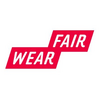
Fair Wear
Standard Owners (1)
| Name | Country | |
|---|---|---|
| FAIRWEAR FOUNDATION | 🇳🇱 Netherlands |
About (Fair Wear)
Fair Wear certification is a recognized and independent certification system that aims to improve working conditions in the garment and textile industry. It focuses on ensuring fair labor practices, safe working environments, and the protection of workers' rights throughout the supply chain.
The Fair Wear certification is based on a set of labor standards that are aligned with international labor conventions and guidelines, such as those established by the International Labour Organization (ILO). These standards cover various aspects of worker well-being, including:
Freedom of Association and Collective Bargaining: The certification ensures that workers have the right to form and join trade unions, engage in collective bargaining, and negotiate fair employment terms and conditions.
Fair Wages: Fair Wear certification promotes the payment of living wages that provide workers with a decent standard of living for themselves and their families. It encourages brands to work towards fair wage benchmarks and collaborate with suppliers to improve wage levels.
Safe and Healthy Working Conditions: The certification requires employers to provide a safe and healthy work environment for their employees. This includes compliance with occupational health and safety regulations, appropriate training, and the provision of necessary protective equipment.
No Forced or Child Labor: Fair Wear certification strictly prohibits the use of forced labor and child labor. It ensures that workers are employed voluntarily and that all workers are of legal working age as defined by national laws and international standards.
Transparent Supply Chains: The certification promotes transparency in the supply chain by encouraging brands to disclose information about their suppliers, subcontractors, and production locations. This helps to ensure accountability and traceability throughout the production process.
By obtaining Fair Wear certification, brands demonstrate their commitment to ethical and responsible practices in the garment industry. The certification process involves audits, on-site assessments, and continuous monitoring to ensure compliance with the established labor standards. It provides consumers with the assurance that the certified products have been manufactured under fair and safe conditions.
In summary, Fair Wear certification is a comprehensive system that focuses on improving working conditions in the garment and textile industry. It verifies compliance with labor standards, promotes fair wages, safe working conditions, and the elimination of forced and child labor. The certification enables brands to demonstrate their commitment to responsible sourcing and supports consumers in making ethical purchasing choices.